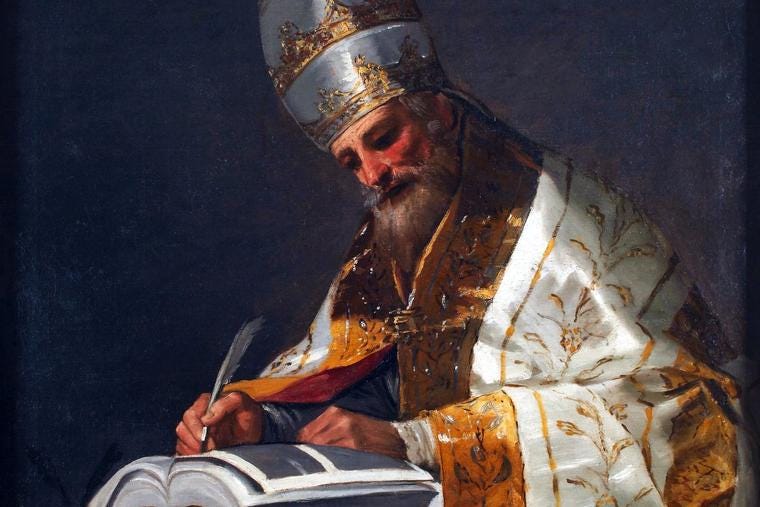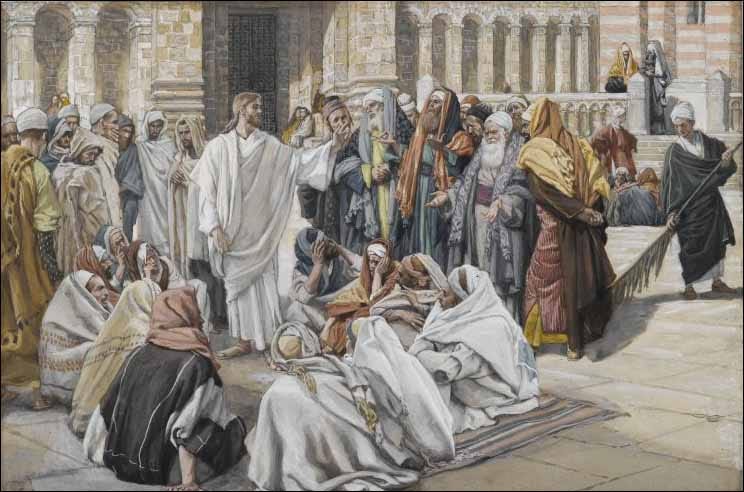Why You Need Thomas The Apostle
The Patron Saint of Skeptic has never been more relevant...
If you're uncertain about faith or if you've rejected it because it seemed naive, oppressive, or irrational, you're not alone. Many of us start there, especially in the modern age when it is easy to be nihilistic.
Nearly every major religion has a figure who questioned before they believed.
In Christianity, there’s Thomas the Apostle, the one who refused to believe in the resurrection until he saw the wounds for himself.
This isn’t unique to Christianity. The Buddha’s disciple Śāriputra was a skeptic before becoming one of his wisest followers. Arjuna, in the Bhagavad Gita, broke down in doubt before receiving divine guidance. Even Abraham in the Qur’an asked God for a sign. Moses hesitated. Socrates questioned everything. Doubt has always been a doorway to deeper truth about life.
So if you’ve been told to mock and laugh at religion, or if the peace of believers irritates you, ask yourself: why? If faith brings others joy, but makes you angry, maybe it's not their belief that needs questioning, but if what you are doing makes you happy.
The truth is: there are forces in this world, political, cultural, even spiritual, that benefit from you being confused, lost, and disconnected from deeper meaning. They would rather you scoff than seek, tell you that attitude is the right one while you mindlessly fall through life working a job you don’t want to do, watching shit movies, and consuming pornography wondering why you can’t find real love. But you're allowed to question this life before you die. You're allowed to explore what faith actually is, beneath the noise and propaganda.
That’s what this article is about. Not blind belief. Not dogma. But your sacred right to question everything around you, and the courage to search for something more.
The Touch That Proved the Truth
After the crucifixion, the disciples were scattered and afraid. The tomb was empty. Rumors were swirling. Christ had appeared to some, but not all. And Thomas, absent from the first appearance, could not believe.
“Unless I see in His hands the mark of the nails, and place my finger into the mark of the nails, and place my hand into His side, I will never believe.” - John 20:25
This was not arrogance. It was grief tangled with reason. Thomas had watched his Lord die. He had seen the blood. He had buried his hope. And now, surrounded by rumors and reports, he asked for something more than secondhand faith. He wanted to see for himself. He wanted something real.
Eight days later, Christ returned. This time, for Thomas.
“Put your finger here,” He said, “and see My hands… Do not disbelieve, but believe.” - John 20:27
There is no anger. No scolding. No shame. Christ meets him in the doubt and invites him to touch the truth. This is not a God afraid of questions. This is a God willing to be examined.
The Right to Question
We live in an age where questioning is not illegal, but it is punished. To challenge the dominant narrative, on politics, medicine, gender, morality, or meaning, is to risk exile from polite society. To ask, “Are we certain this is true?” is to be labeled a threat.
Yet faith does not begin with blind agreement. It begins with an invitation: “Come and see.”
The curious mind is not the enemy of faith. Often, it is the seedbed of it. Augustine’s restless heart, Aquinas’ rigorous reason, Pascal’s trembling intellect, all were men who dared to ask, think, and pursue God through questioning.
The Church has always welcomed doubt when it is ordered toward truth. What she warns against is a prideful, mocking doubt, a skepticism that refuses to seek, that tears down without building up. But honest inquiry is something else. It is sacred.
St. Gregory the Great wrote of Thomas: “The unbelief of Thomas has done more for our faith than the faith of the other disciples.”
The Collapse of Thought
We live in a time when people say, "think for yourself," but mean "agree with me." Our age praises independence in theory but punishes it in practice. We are formed more by what we read online and are told than by Scripture, more by algorithms than by old wisdom. Our beliefs are shaped by trends, not tested by truth.
This decline is not just intellectual. It is spiritual.
“The time is coming,” Paul warns, “when people will not endure sound teaching… but having itching ears they will accumulate for themselves teachers to suit their own passions.” - 2 Timothy 4:3
We are already there. Our culture demands instant allegiance to every new idealogy. To hesitate is heresy. To question is betrayal.
When doubt is forbidden, it does not disappear. It festers. People hide their questions, suppress their instincts, and talk underground, in secret.
But Christ never demanded silence from those who struggled. He answered questions. He told stories. He asked even more questions in return. Faith has never required the death of the mind, only it to be open to truth.
Discernment in the Modern Age
Scripture teaches that discernment is the duty of everyone with faith:
"Beloved, do not believe every spirit, but test the spirits to see whether they are from God." - 1 John 4:1
In the modern age of intense spiritual warfare this is more important than ever. There is a battle going on right now with no escape, influence seeps into your home through your TV screen, through your phone, through every form of media. You must decide for yourself what is and isn’t real. What is and isn’t malevolent. What is and isn’t good for you, your family, and your friends.
To test, one must ask. To discern, one must compare. That means confronting culture, opinion, feeling, and teaching with the divine and good in mind, even if contrary to what you are told by others.
Discernment is slow. It is often lonely. But it is necessary.
“Do not be conformed to this world,” Paul says, “but be transformed by the renewal of your mind.” - Romans 12:2
Question Everything
In a world allergic to thought, to question is seen as a threat.
To love God with your mind and connect to the divine means asking hard questions. It means seeking answers. It means pressing into discomfort until it gives way to clarity. And when that clarity comes, you stand by the truth.
Truth above all else, no matter how uncomfortable it may be.
Be a modern day doubting Thomas, do not be afraid to ask questions and think for yourself.








Hey I wrote a poem about this I'll share it after publishing it.
Embracing scepticism is the first step toward discovering the emptiness of trinity theory.